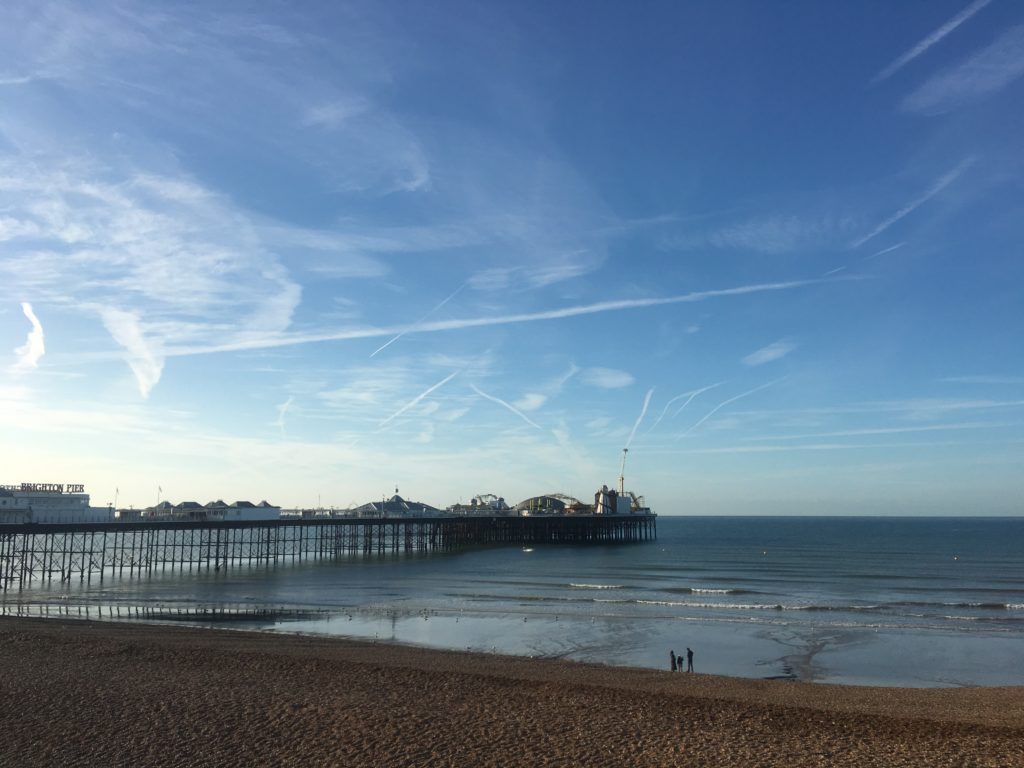
If you’re new to my sustainable (?!) journey across the world, here’s a menu to help you find your way: https://ourrelationshipwithnature.com/overview-overland-uk-2-nz-without-flying-eleven-stages-in-fifty-days/
For fellow travellers who might notice errors and omissions, please add your comments. In fact, all comments welcome!
Quick update: I have been granted an electronic NZ Endorsement, which I don’t need to print out. I trust the server will keep those records safe. Thanks, NZ Immigration!
Finishing up my summer teaching with Kings Education Brighton (I don’t know how I could have attempted this journey without Stephen’s support, thanks Boss DOS!) I moved to London for a couple of days to gather myself together.
A few chores and little shopping things: I wanted to get some currency, euros, roubles etc, just small change, so that if I needed a taxi or something on arrival in a country I wouldn’t have to panic looking for a bank. I found a cache of Money Changers nested close together around the Leicester Square Tube, near Covent Garden. It was raining. I went from window to window to compare rates and was informed that, yes, it was a good idea but I should have organised it three or four days earlier. They have to order in the different currencies. I could call back in the afternoon when they would have enough euros and possibly some yuan but unlikely roubles or zlotys. Every morning they start afresh.
Here is the lesson. If you want to go overland start thinking ahead. Minimum three months to get the ship and the visas and now, three days for the currencies!
Time for a quiet walk in a London park …
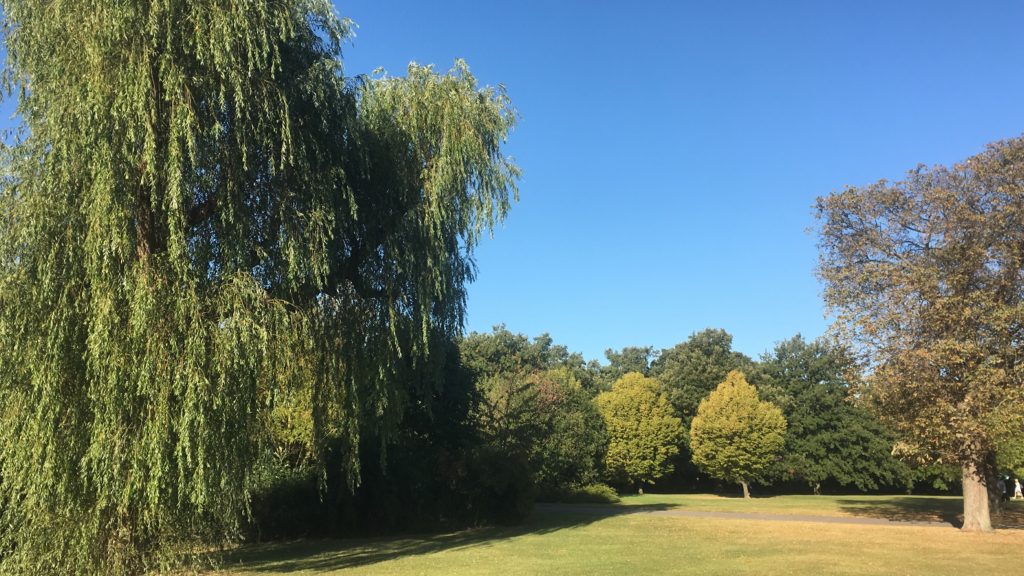
and an orange fog
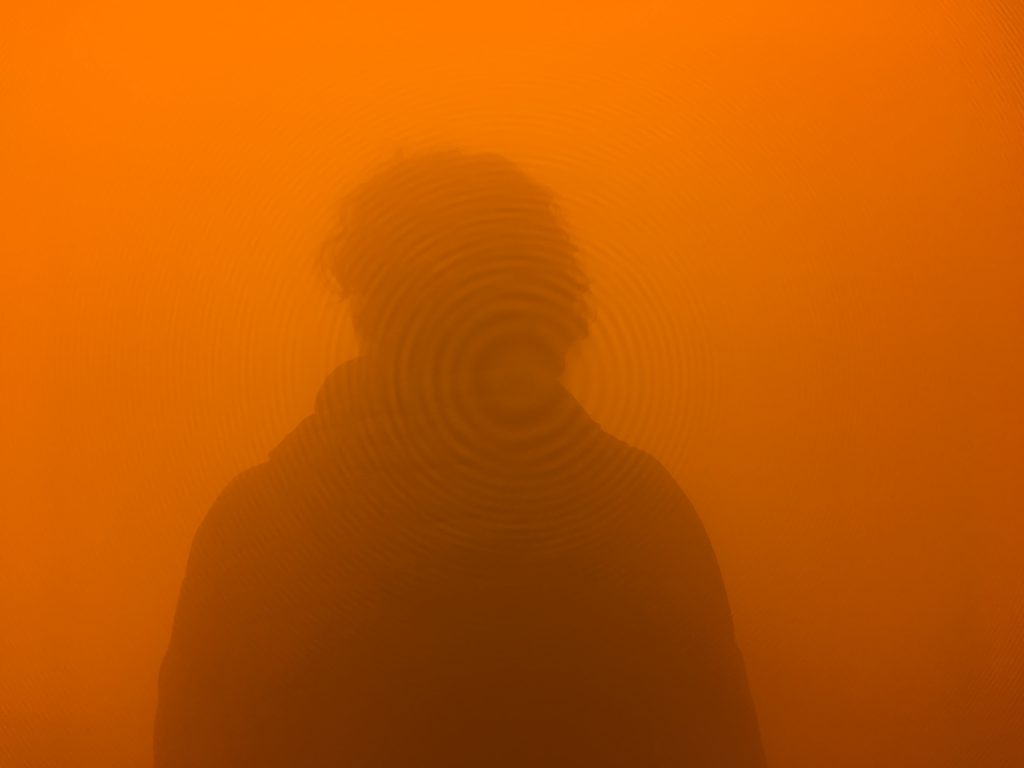
What would be ahead of me in my journey across the world?
Check out his https://littlesun.com/
and Hampstead Heath
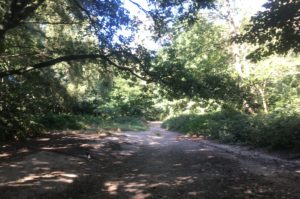
to see a seminar in the How the Light Gets in Festival called Modern Crises and Ancient Gods. The speakers were Baroness Natalie Bennett and Roger Hallam (absent due to arrest), Sir David King and Sister Jayanti with moderator, David Malone.
King proposes to repair climate change by refreezing the poles.
Baroness calls out for system change and sustainable development goals.
Sister reminds us each and every one of us is part of our family.
(Note: the arrested one is silenced.)
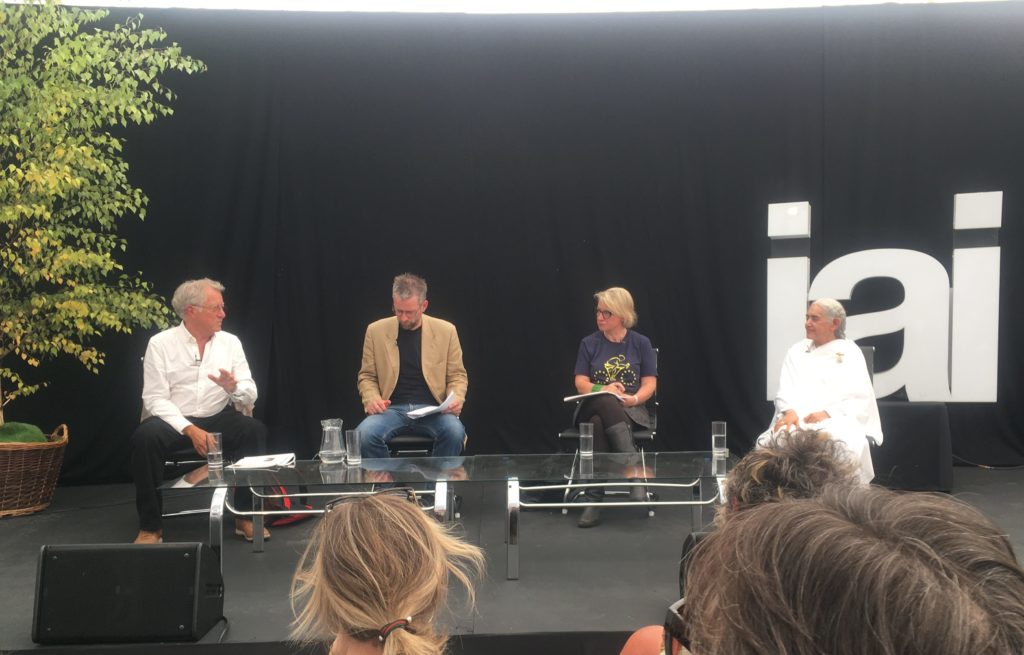
It was Saturday Sept 21 13:15, grounds of Kenwood, Hampstead Heath
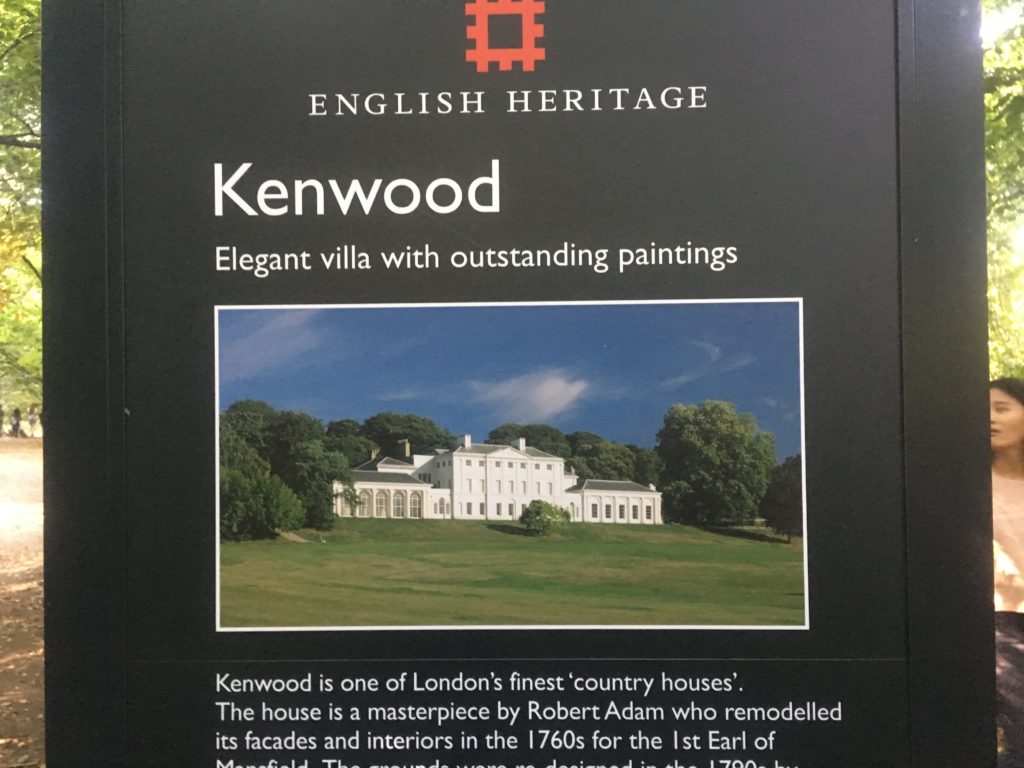
My great-aunt Winifred (Min) was a charismatic dowager who took great delight in teasing status. She arrived at our house one day thrilled she’d caught a lift in a vehicle bearing the Royal Coat of Arms. She’d hitched a ride in the post-office truck, while wearing her fur coat, of course.
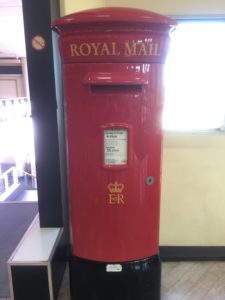
She taught me the value of persistence.
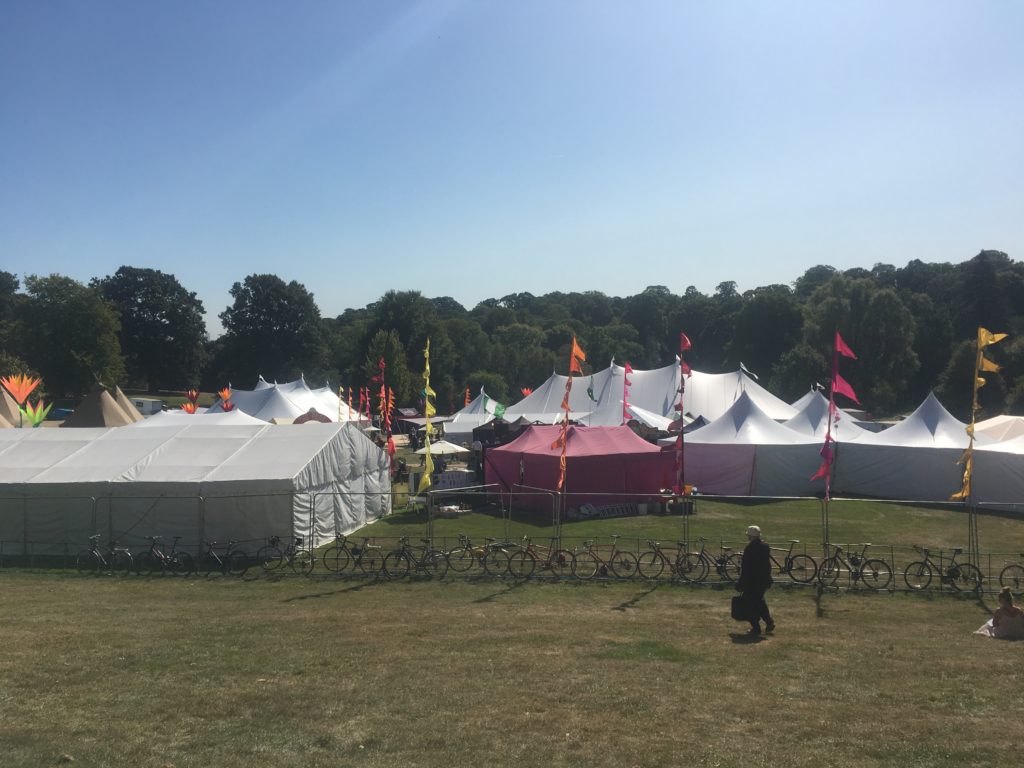
When I arrived at the glamorous tent city that housed the UK’s answer to TED, I discovered that I had not purchased a daily ticket for eighty-four pounds online. (Eighty-four pounds!) Instead, I had two months previously, merely bought a ‘fast-pass’ for this one ‘Crises’ seminar for five pounds. I arrived half an hour early and the bag search people let me in as far as the ticket desk, shaking their heads, muttering to each other, how could it have happened? At the desk where I was told I could not enter without a daily ticket, I explained I could not stay for more than a couple of hours. Could they let me buy an afternoon ticket? Nope. All or nothing. (NOTE: This is how ideas are spread. By money.)
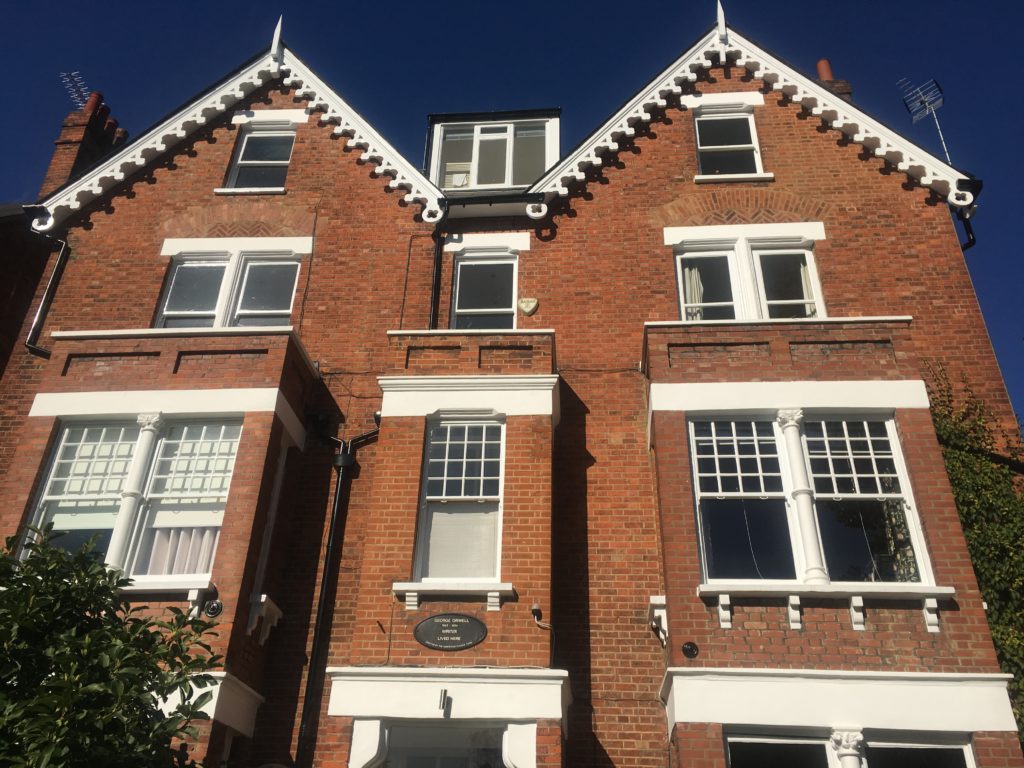
I asked to speak to a superior. Finally, Daisy the manager let me in just for the session, bless her. I did remember Min’s charming, cajoling ways. She would have been proud of me.
I explored the surroundings before my seminar began. No water refill station. No compost toilets. (The reason I’ve linked to UK companies here is when I asked organisers they said they couldn’t find any. Took me all of three seconds each, if you’re reading this for next year… ) What was I in for?
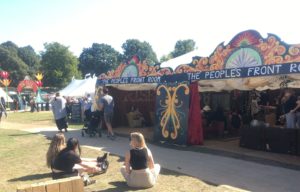
King’s opening remarks began with the sad observation it took twenty-seven years to get the Paris accord and nothing has changed since then. Making a valient effort to speak to the topic, he noted Greek, Judeo/Christian philosophy has changed the original meaning of ‘physis’. No longer the universe we’re thrown into, where the Gods of the seas must be appeased with sacrifices to prevent them rising up and swallowing the sailors, but ‘physics’. He also referred to the Oxford Dictionary’s definition of nature as being separate from humans:
nature /ˈneɪtʃə /
Oxford English Dictionary phone app
▸ noun
1 [mass noun] the phenomena of the physical world collectively, including plants, animals, the landscape, and other features and products of the earth, as opposed to humans or human creations: the breathtaking beauty of nature.
King, also a Knight and a Scientist (Chemistry), believes humans are both part of and separate to nature. He thinks we have treated the world like a dustbin and run the risk of losing the earth. He asked how did we lose the sense of the essence of the Earth?
As you know, I think humans are very much part of nature. What do you think?
The Baroness, also a Politican, agreed that we have used the planet as a mine and a dumping ground. She believes arrogant science attempts to offer solutions to problems without fully understanding the consequences. When she studied soil science, at Uni in Australia, fertiliser was all the rage for farming’s woes but now new science recognises fertiliser kills off micro-organisms, causing long-term damage. ‘Fertiliser is good for the father but bad for the son.’ She called for system thinking – bringing together knowledge from many different sources to develop sustainable goals.
I wondered if she recognised she was in a perfect position, seated between a representative for science and one for religion. How could this politician work with her neighbours to create a sustainable goal right then and there?
The Sister, also a Director, explained that not just one part of humanity is to blame. Each and everyone is part of our family.
We could compare that with the brother’s speech in the recent film Farewell, as he exhorted the granddaughter to follow the family tradition of working together to assume the emotional weight of the elder. The revered grandmother must not be allowed to suffer. Her children and grandchildren should take the emotional weight for her. The family worked to keep her happy. If the granddaughter had told her of her cancer it would only have been to assuage her guilt at not being honest. Not telling the truth? The truth so valiant and important? But who would that benefit? Only the granddaughter.
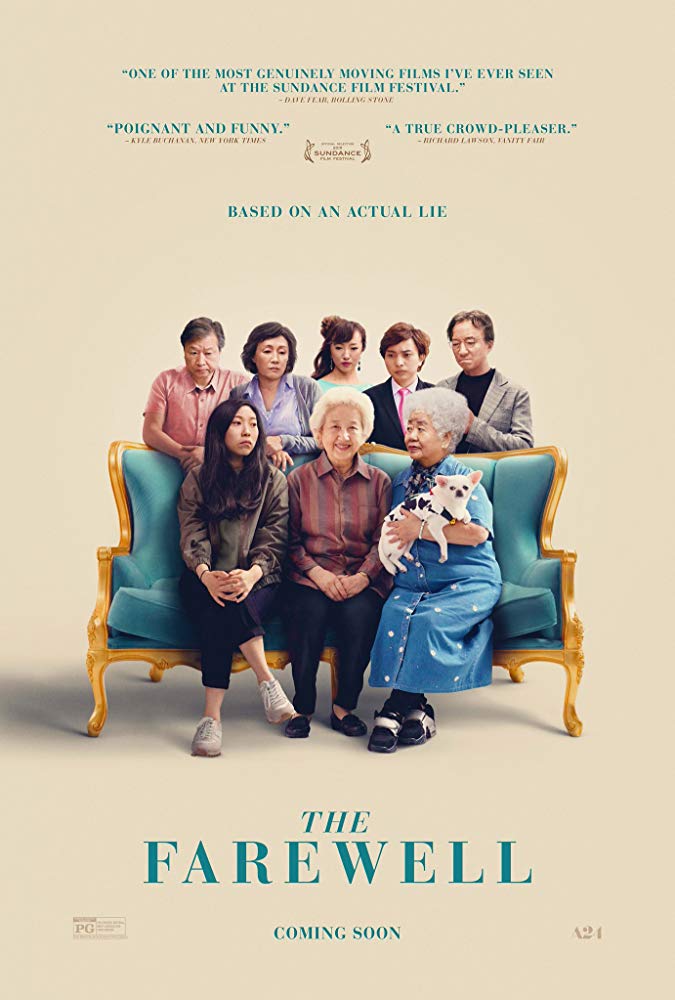
The Sister quietly reminded us that all human beings have values. It’s not science that’s lost values. It’s humans. She said, ‘Come back to knowing who you are’.
David Malone asked King if it was true that 80% of all nuclear power stations were within the projected sea level rise zone. The King (who has a past in nuclear matters) stated it was of greater concern that places like Calcutta and most of Bangladesh were currently in direct peril, with the probable consequence of unimaginable amount of refugees.
The Baroness suggested that science must become more critical of itself. That it was important to recognise all creatures have a need for quality of life. Wellbeing? What does that mean? If all are depressed and stressed, how can that result in a healthy planet? She thinks we need to think about our own existence as a natural organism. What is necessary for survival?
The Sister pointed out that if minds are in a state of chaos, if individuals are struggling within themselves, that is reflected in the world outside. Everything starts from human consciousness. We have to shift our thinking, not just our own spiritual consciousness but our relationships with each other. We need to evolve to a state of harmony and from there to a harmonious relationship with nature.
The King feels now is a dangerous time. It’s not 1932, but similar, a slippery slope. He asked who controls the media? Big money. Not just to sell copy. They are influencing people. We have allowed a small percentage of people to acquire enormous wealth while there are people living on the streets. Consider Europe in the 1930s. Something is wrong. Polarisation does not always end in the right place.
The Baroness said that change has already started. People can see the system is broken. She believes centrist politics is dead. She said, ‘Chose, either Right or Green. We’re not going to stay the way we are. That’s profoundly unstable.’
The Sister wants us to change from within and work together as a family.
Come on, everyone. We can do that!!
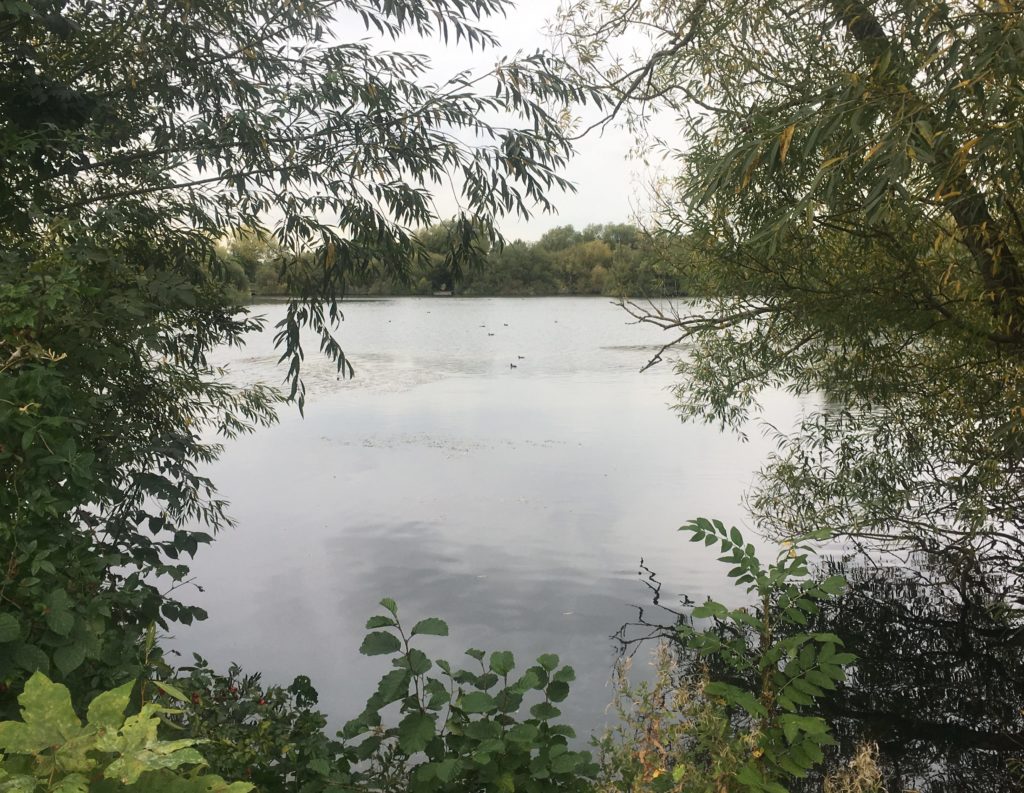
I spent a couple of nights in YHA Lee Valley, London. This hostel is set in a park full of lakes and canals although strictly speaking, it’s still in London.
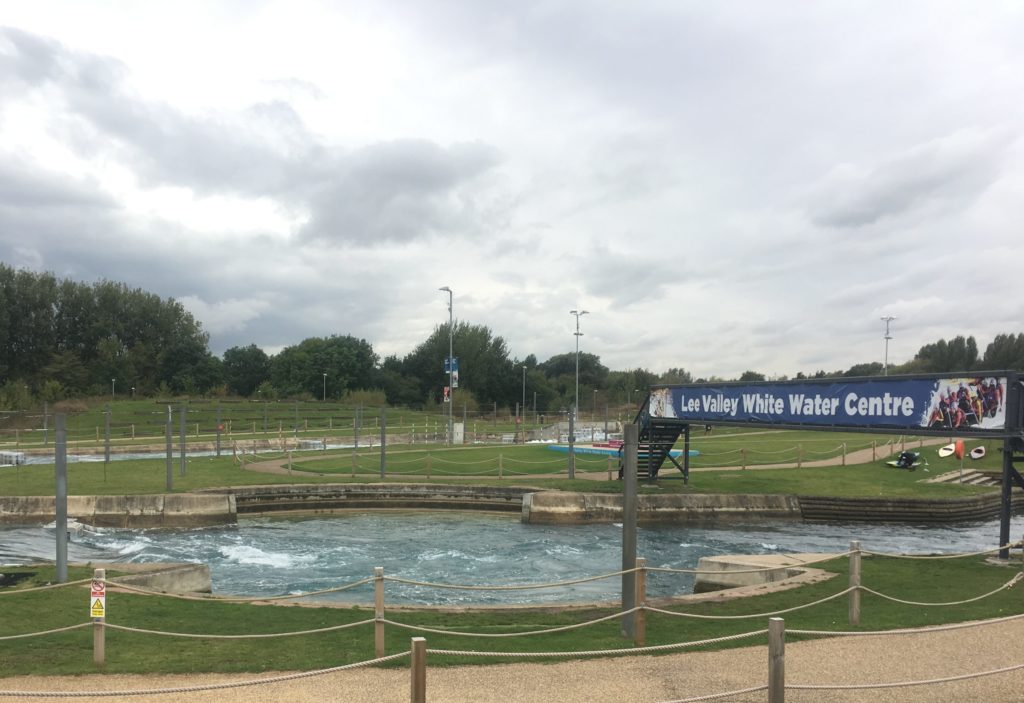
There’s water activities everywhere.
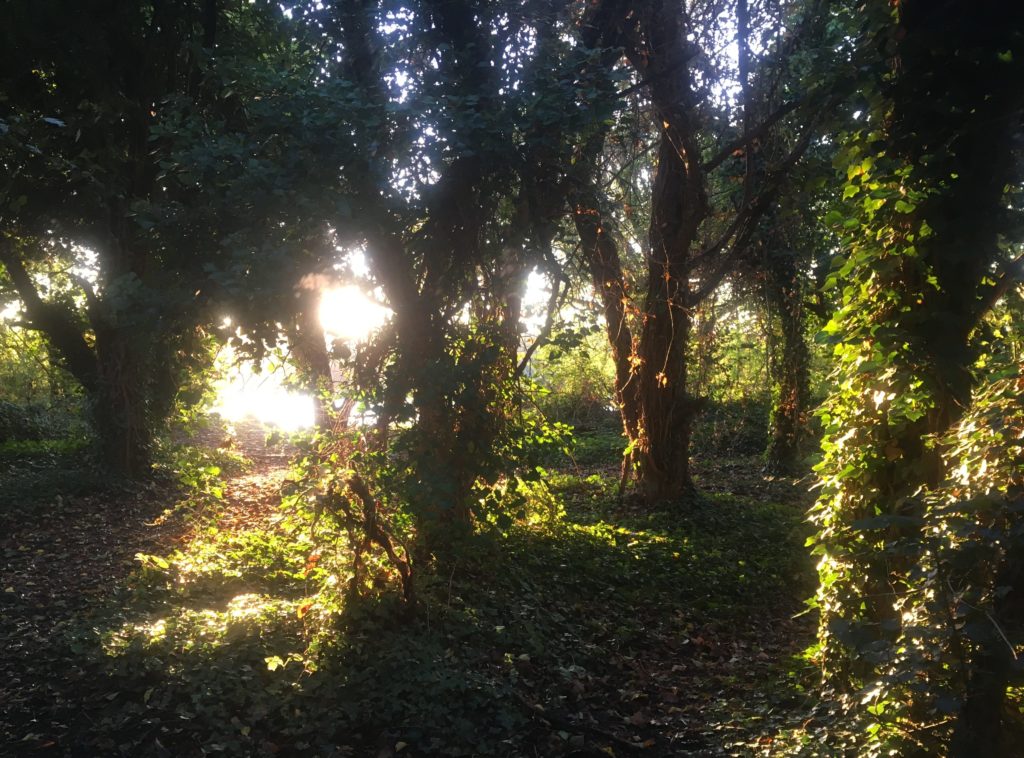
Birdwatching hides and a dragon fly sanctuary, the young mariners club and a white water centre were all part of the once London Olympic complex. It was a great place to admire bird life and sculptures and it even had a proper dog playground with brilliant climbing frames and hoops.
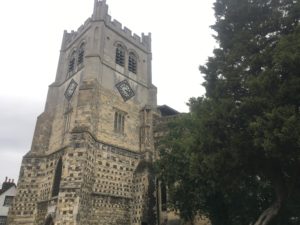
I farewelled England with a quick visit to King Harold’s memorial in Waltham Abbey.
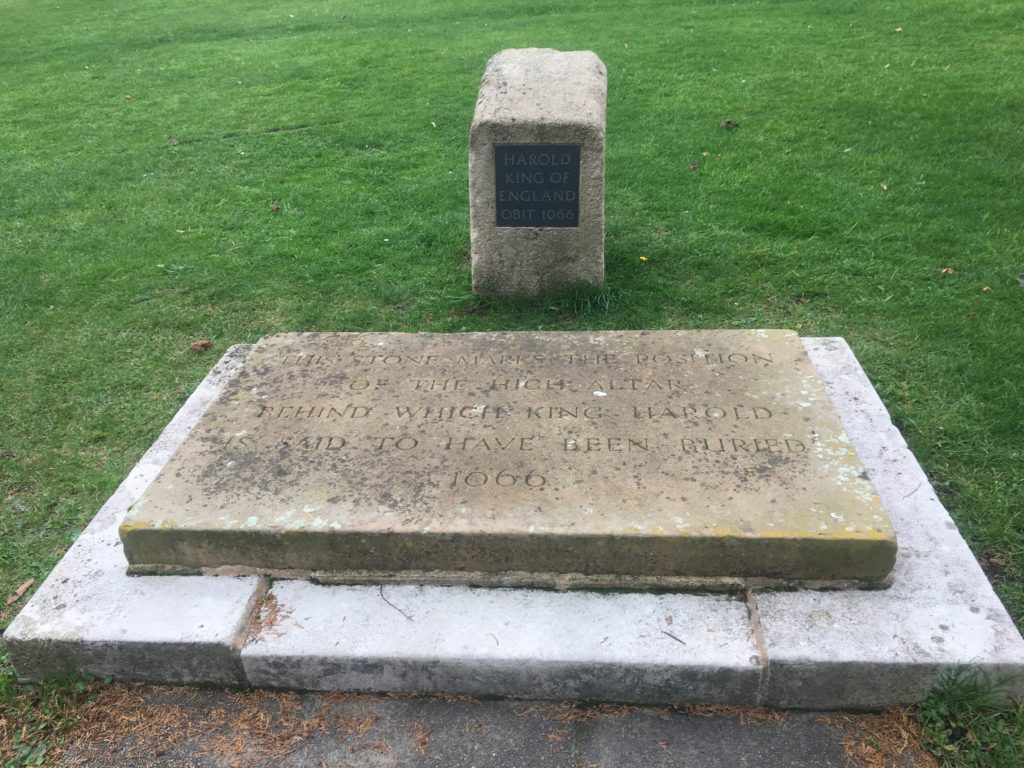
Then I caught the train (forty-three pounds this time) from Cheshunt to Stratford to Dedham Vale to Harwich International. I would be delivered right into the port!
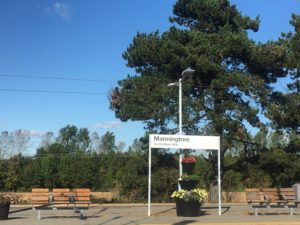
One of my favourite poems is by ee cummings
r-p-o-p-h-e-s-s-a-g-r
E. E. Cummings – 1894-1962
r-p-o-p-h-e-s-s-a-g-r who a)s w(e loo)k upnowgath PPEGORHRASS eringint(o- aThe):l eA !p: S a (r rIvInG .gRrEaPsPhOs) to rea(be)rran(com)gi(e)ngly ,grasshopper;
From Complete Poems: 1904-1962 by E. E. Cummings, edited by George J. Firmage. Used with the permission of Liveright Publishing Corporation. Copyright © 1923, 1931, 1935, 1940, 1951, 1959, 1963, 1968, 1991 by the Trustees for the E. E. Cummings Trust. Copyright © 1976, 1978, 1979 by George James Firmage.
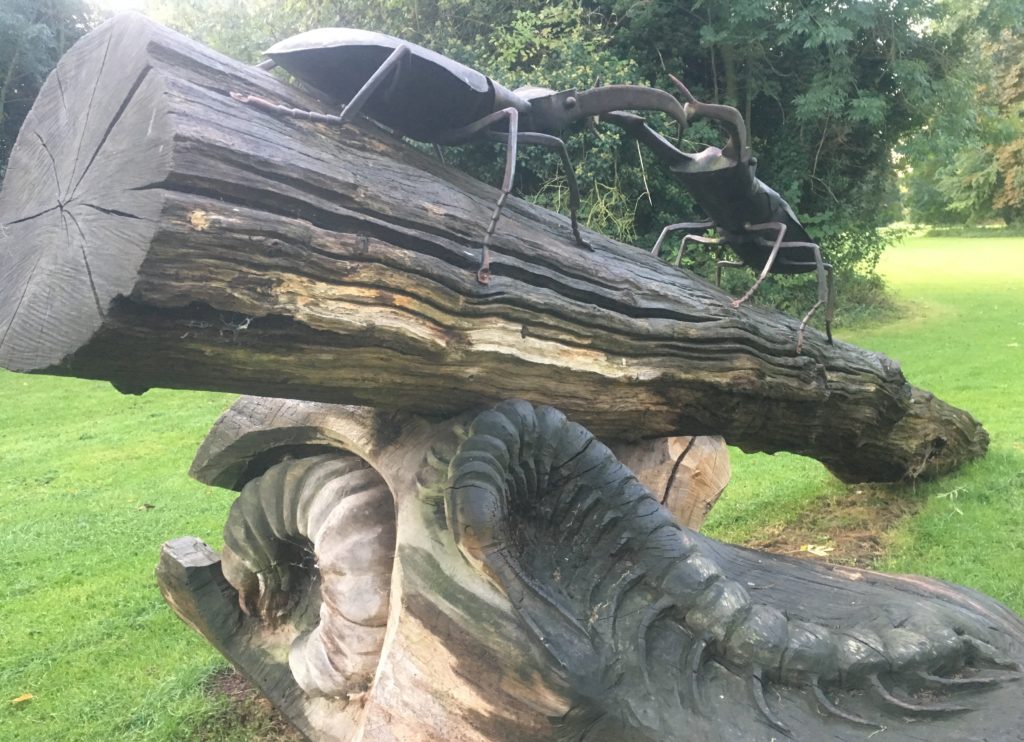
The gathering is over. Now, we leap … To STAGE ONE!

Loving your blogs V. The challenges of listening to the experts are not in vain. The knowledge you gain and the confirmation that we need to ban together to make change is absolutely real and worth the hardship. You’re doing a good thing and paving the way for those who as committed as you.
Thank you, MA! You are very kind! You’re right, I do hope it is useful. I hope other people can find the time and energy to fly less and the companies who stand to benefit, ie rail and sea, attempt to come closer to sustainability as soon as possible.